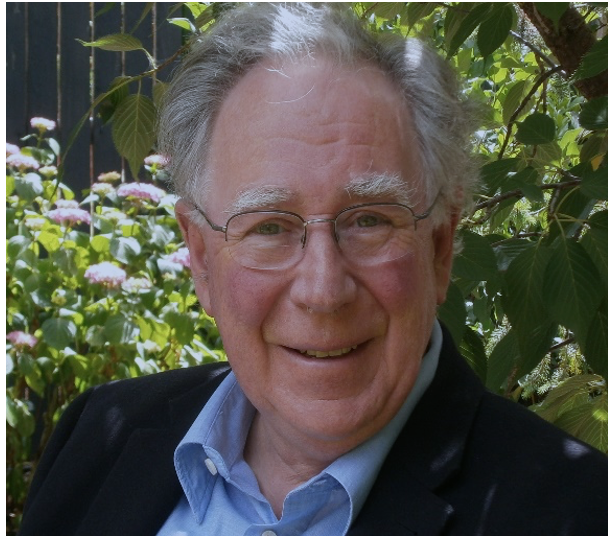PAUL COLLINS. An Open Letter to Sydney Archbishop Anthony Fisher
August 18, 2017
I am disturbed by your identification of your personal views on marriage equality with those of the Catholic Church… The saddest thing is that you have linked Catholicism with some of the most reactionary and unattractive political forces in the entire country.
Dear Anthony,
Like many Australian Catholics, I am disturbed by your identification of your personal views on marriage equality with those of the Catholic Church. No one questions your right to hold such views, but many are concerned when you identify them—or allow others, such as journalists—to identify them with the teaching of the Church. You must be aware that, as Archbishop, journalists will take what you say as authoritative and as pitching “the Catholic Church in a heated battle against Labor and key backers of the Yes campaign”, as reported in The Australian on 14/8/17. You may be involved in a “heated debate” with the Labor Party and the “yes” campaign, but most Australian Catholics are not.
Yes, I know that similar views to yours were expressed in the 2015 pastoral letter of the Australian Catholic Bishops Conference entitled Don’t Mess with Marriage. It has been widely rumoured that you were the substantial author of this document. Be that as it may, it is significant that the pastoral contains only one reference to scripture, simply referring to the two becoming “one flesh”. I would have hoped that you would have trawled through the bible to provide some basis for your views on marriage. The scriptures are normative for us as Catholics, surely?
The theological content of the Don’t Mess document is negligible and it fails to recognize that marriage historically has taken several forms within the Christian era and that the church only became involved in the marriage business in the late-eleventh century. Prior to that it simply followed societal norms, which were largely based on inheritance of land and clan ties, and the remnants of Roman civil law.
It was not until the early twelfth century that marriage came to be recognized as a sacrament and it was not until the 24th session of the Council of Trent in 1563 that it was declared a sacrament. So, for 1500 years of church history marriage operated largely according to societal rather than theological norms.
Your fellow Dominican, Saint Thomas Aquinas, is interesting on marriage. Discussing the sacramental nature of marriage, he says that it is a sacrament “in so far as it represents the mystery of Christ’s union with the Church.” He continues that “[as to] other advantages…such as the friendship and mutual services which husband and wife render one another, its institution belongs to the civil law” (Summa Theologica, Suppl., q. 42, a. 3). This would indicate that marriages that don’t reflect the union of Christ and the church are not sacramental and therefore are solely subject to the civil law. Surely this applies to gay marriage?
In fact, the arguments put forward in Don’t Mess and in your recent media interventions, are really drawn from an early-twentieth century, bourgeois notion of marriage which found a slightly more modern, post-World War II expression, in the nuclear family. Catholic theological reflection on marriage was sparse right-up to the Second Vatican Council (1962-1965), which at least recognized that the mutual fulfillment in the love of the spouses was one of the fundamental “ends”, or purposes of marriage.
Prior to Vatican II discussion of marriage was almost entirely confined to canon law, usually focussing on issues of consent, consummation and annulment and, in much of the Anglo-American world, on rules governing mixed marriages. The other thing we need to remember is that we both belong to a church with a totally inadequate theology of the body, the flesh and sexuality and that rather than arguing about gay marriage, we ought to be putting our energy into serious theological reflection on these issues.
Another thing while we’re on theology: a bishop’s teaching authority is not absolute, as though he were a local Delphic oracle. Especially on issues that concern it, the church, i.e. the whole community of the faithful, must be consulted before anything that bishops say is binding on anyone. This is precisely what John Henry Newman was talking about in his essay On consulting the laity in matters of doctrine. The doctrine of reception is also important here. Catholic theology clearly holds that for a teaching to be binding on the faithful, it must be received, that is that Catholics accept it as true.
I see no evidence that you have consulted widely with the Sydney church before you made your opinions known to the media. The evidence available points to the contrary. As to the Australian bishops’ pastoral Don’t Mess, the then-Cardinal Joseph Ratzinger told us that bishops conferences have no teaching authority whatsoever. While I disagree with him on this, I would have thought that Australian Catholics, following Ratzinger, might justifiably take the bishops’ pastoral with a grain of salt.
The saddest thing is that you have linked Catholicism with some of the most reactionary and unattractive political forces in the entire country. You may agree with such people, but please don’t identify our church with them. Also, Sydney Anglican diocese and the Australian Christian Lobby represent a tiny proportion of Christians in Australia and their conservative evangelical emphasis has little in common with Catholicism. Your joining with them is clearly a “marriage of convenience.”
My request is that you take these issues into consideration before you go on the record again claiming that your views represent those of Australian Catholicism. They don’t. Thank you, sincerely, Paul Collins.
Historian and broadcaster Paul Collins most recent books are The Birth of the West (2013) and A Very Contrary Irishman (2014). His Absolute Power will be published early next year by Public Affairs in New York.
